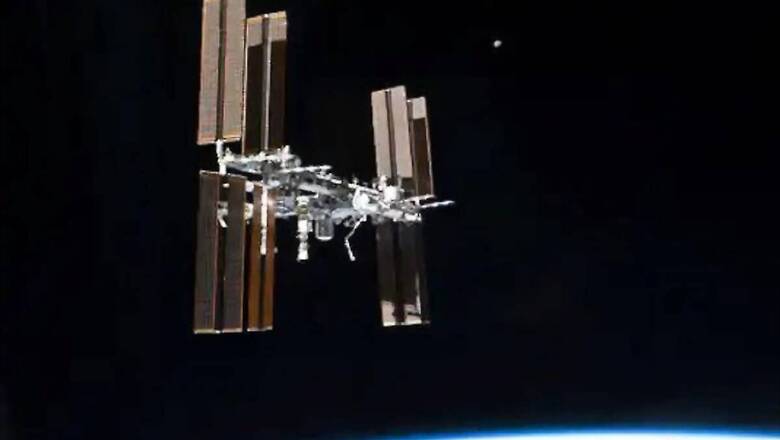
views
On October 31, 2000, a Russian Soyuz space shuttle lifted off from the now-iconic Baikonur cosmodrome in Kazakhstan with three astronauts onboard. Two days later, on November 2, the shuttle docked itself to the then-largely-basic contraption of platforms and experiment quarters orbiting Earth at about 400 kilometres above our surface. Thus started a chain of constant human presence aboard the International Space Station (ISS), and as a result, there has never been a single moment in the past two decades when all of mankind were all present on Earth. While this isn’t something that we would generally be thinking of in the overall sense, such a statistic puts into perspective the advancement that mankind has made in space exploration.
With the 20th anniversary of the ISS approaching, it is interesting to understand all that has been achieved in our mobile home out in space. The Space Station has expanded into more than just a couple of American and Russian experiment quarters, and now carries a robust range of research apparatus as well as living quarters. The ISS has also recently played host to the first private commercial space shuttle in history, when the SpaceX Crew Dragon docked at ISS’ Harmony port on May 31. Over time, it has played a defining role in space research, with the eventual, long-term goal of understanding the effects of long term spaceflight on humans.
The ISS has played host to some of the biggest, pioneering astronauts such as NASA’s Christina Koch and Scott Kelly, who spent close to a year each aboard the ISS. It has contributed to crucial research projects. Some of them have included finding a cure for Parkinson’s Disease, growing tissue chips in space to understand the impact on skin and organs that the hostile space environment can have, and also growing seeds to understand cultivation in microgravity conditions.
While Earth’s population is close to touching 7.6 billion, it would appear so that over the past two decades, mankind has always been short of at least two people, in terms of humans on Earth. These select, highly trained and specially qualified individuals have been at the cutting edge of space research, with the key objective of one day allowing humans to adapt and adjust to life on another planet.




















Comments
0 comment